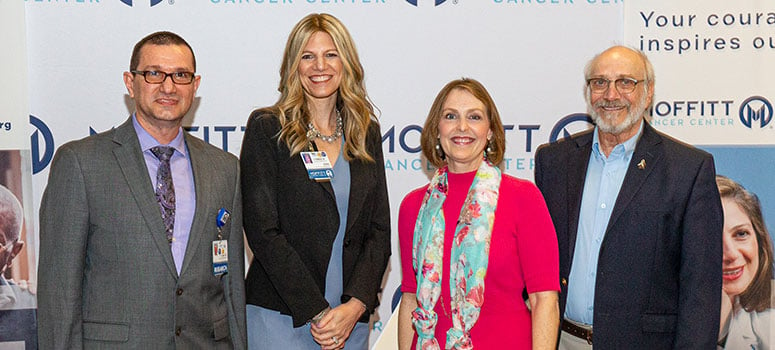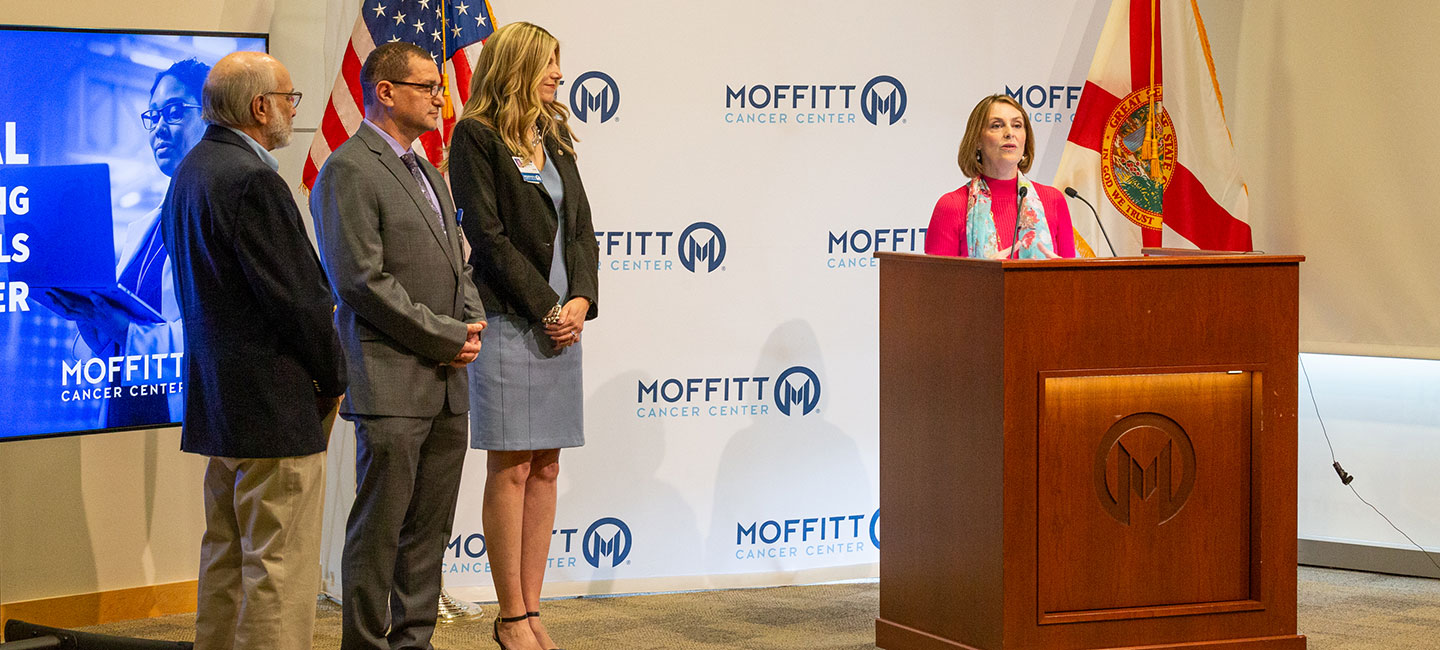Moffitt Receives $2M Federal Grant to Support AI in Cancer Research
U.S. Rep. Kathy Castor announced that Moffitt Cancer Center will receive $2 million to advance the use of artificial intelligence and machine learning in cancer research discovery and clinical care.
The grant is part of a Congressional Community Project Funding Award, which directs federal funding to projects that would benefit an entity, state or congressional district. The money will be used to support the purchase of high-performance computing equipment that will provide critical infrastructure for the use of AI and machine learning in cancer research at Moffitt.
Over the years, Moffitt has collected data from more than 400,000 patients, including radiologic images, pathology reports, molecular data, treatment information, patient-reported symptoms and data from personal monitoring devices. The goal is to integrate all this information into the cloud-based Moffitt Cancer Analytics Platform.
“So how do we make sense of these heterogenous pools of data? This requires cutting-edge data science and informatics tools that can help us analyze and see patterns in data that frankly we can’t see as humans alone. This is where AI and machine learning come into play,” Dr. Dana Rollison, chief data officer and associate center director of Data Science. “If we really want to advance precision oncology in the years to come, we need to be able to understand the complex landscape of data beyond just molecular features of the tumor and be able to unite those pieces of information into a unified care plan.”

U.S. Rep. Kathy Castor poses with Dr. Issam El Naqa, Dr. Dana Rollison and lung cancer survivor Ed Cutler.
With the new funding, Moffitt’s Machine Learning Department will be able to utilize supercomputers that can train AI models using such large and diverse pools of data. This infrastructure will help widen the capacity of the department to pioneer more machine learning approaches and systems to find new ways to prevent, detect and treat cancer.
“We are very grateful for the support and the infrastructure that will allow us to show that AI can have a significant impact by providing this computational resource and this supercomputer capability that will allow us to train algorithms that can actually personalize treatment and realize the tremendous potentials of AI in cancer research,” said Dr. Issam El Naqa, chair of the Machine Learning Department.
Researchers also plan to use the new supercomputer to analyze radiologic and pathologic images and track changes in the molecular profiles of patient tumors to model how a tumor grows over time and how that growth may be influenced by physiologic and treatment-related processes. This will greatly accelerate Moffitt’s ability to develop new personalized lifesaving treatments.
“We need to be able to integrate all this information for a patient, and not just one time at the time of diagnosis, but as the journey continues. Patients survive, the tumor is changing, the patient is changing and the care plan needs to change,” said Rollison. “So, being able to integrate all this data in real time is critical to advance precision oncology.”



